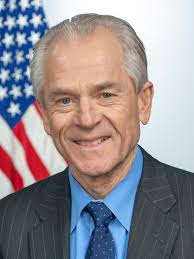Peter Navarro’s Recent Legal Challenges and Political Impact

Introduction
Peter Navarro, a prominent figure in U.S. politics and a former advisor to President Donald Trump, has recently been at the centre of significant legal turmoil. His role in the Trump administration and subsequent actions have sparked considerable debate and scrutiny, making him a key figure in discussions surrounding policy and governance.
Background
Navarro served as the director of the Office of Trade and Manufacturing Policy during Trump’s presidency, where he was an outspoken advocate for protectionist policies and challenged established trade agreements. His economic theories, particularly regarding China, have shaped much of the current discourse on international trade.
Recent Legal Issues
Currently, Navarro faces legal challenges stemming from his participation in efforts to overturn the 2020 presidential election results. He was indicted on multiple counts, including contempt of Congress for defying a subpoena from the January 6 House select committee. This indictment has ignited debates over executive privilege and accountability in governance, with implications for similar future cases involving former officials.
Navarro has pleaded not guilty, arguing that he was acting in the interests of national security and that his actions were intended to defend the integrity of the election process. His refusal to comply with the subpoena has raised questions about the limits of executive privilege and the responsibility of government officials to adhere to legal requests.
Political Implications
The legal proceedings against Navarro could significantly impact his political career and influence within the Republican Party, which remains divided on many issues, including the legacy of the Trump administration. Should Navarro’s case proceed to trial, it will likely attract substantial media attention, potentially galvanising both supporters and opponents.
Moreover, Navarro’s situation reflects broader tensions within U.S. politics regarding accountability and the rule of law. As the political climate continues to evolve, the outcomes of such cases carry weight not only for those involved but for the shaping of future governance and political accountability.
Conclusion
Peter Navarro’s legal challenges highlight ongoing issues of accountability in U.S. politics, especially concerning actions taken during and after the Trump administration. As the trial approaches, it will be essential for observers to consider how the outcomes may reverberate within the Republican Party and the broader political landscape, particularly leading up to the 2024 presidential election. Understanding these dynamics will be crucial for voters and analysts as they navigate the increasingly complex world of American politics.









